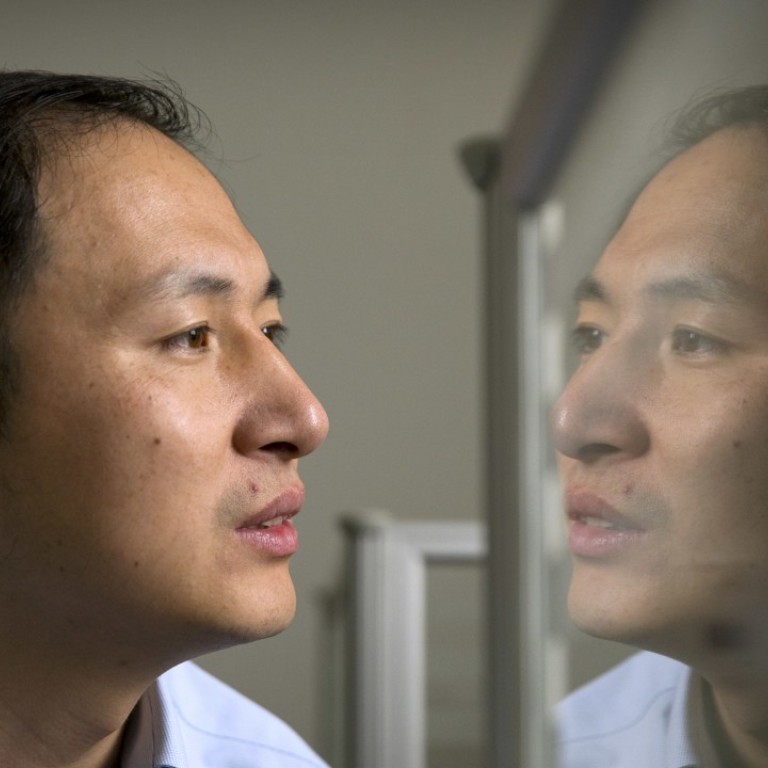Had it not been for
Chinese scientist He Jiankui, the Second International Summit on Human Genome Editing would not have received much fanfare. A couple of news articles would have mentioned Chief Executive Carrie Lam Cheng Yuet-ngor’s speech at the summit, and maybe highlighted figures to make Hong Kong look good. We would have gone on with our lives without giving gene editing much thought.
Come on, admit it. You don’t remember
Lam’s policy address last year, in which she announced that a steering committee would study strategies for developing
genomic medicine in Hong Kong. So you wouldn’t have paid attention to the follow-up, where Lam revealed at the summit last week that the steering committee had made a recommendation, and that she had accepted it.
Specifically, the committee put forward a proposal “to conduct a large-scale genome sequencing project in Hong Kong in order to enhance the clinical application of genomic medicine”, she said. “The project also aims to promote innovative research on genomic medicine to cater for future medical development in Hong Kong through the establishment of genome data of local population, testing infrastructure and talent pool.” How will the genomic data of Hong Kong be mined? She didn’t say, but she did say she had promised government funding.
Now that He, dubbed China’s very own Dr Frankenstein, has shocked the world by creating the first genetically edited babies, we should be asking the government how exactly it plans to collect our genomic data and what it intends to do with it all.
He Jiankui has received global condemnation. It’s easy to understand the outrage, now that the world is catching up with
what the scientific community has been doing. Where once we had hazy ideas about “
designer babies”, now we clearly know the
dangers of genome editing: snipping or inserting a gene sequence could cause an unpredictable change that would be passed down to future generations. It is possible that gene editing could make a cell resistant to one disease but vulnerable to another. These are just some of the consequences.
Unfortunately, there has not been enough discussion about how
self-regulation has utterly failed. The scientific community is not above bad judgment calls. Scientists can make bad decisions like the rest of us; that’s how we ended up with He making two HIV-resistant babies with scant regard for their future health, while believing that he was doing the right thing. But we should remember that
eugenics – the belief that selective breeding improves the human gene pool – has not made the world a better place.
Editing of the DNA of human embryos is allowed in many countries, including the United States and Britain. But He crossed the line by implanting the edited embryos in more than one woman. Yet, a statement that 122 Chinese scientists issued against He is rather unfair. Calling a peer “crazy” is unscientific; more importantly, the condemnation is a red herring.
He is wrong and should be punished. But that doesn’t change the fact that what he did is something that should have been anticipated and prevented. Back at the first International Summit on Human Genome Editing, held in Washington DC in 2015, participants highlighted that the private sector would have strong motives for developing both treatments for diseases and procedures for enhancing human traits. He had
funding for his “crazy” experiments. So the world should thank He for drawing our attention to these very important issues, which cannot be left to the judgment of a handful of people.
Alice Wu is a political consultant and a former associate director of the Asia Pacific Media Network at UCLA


